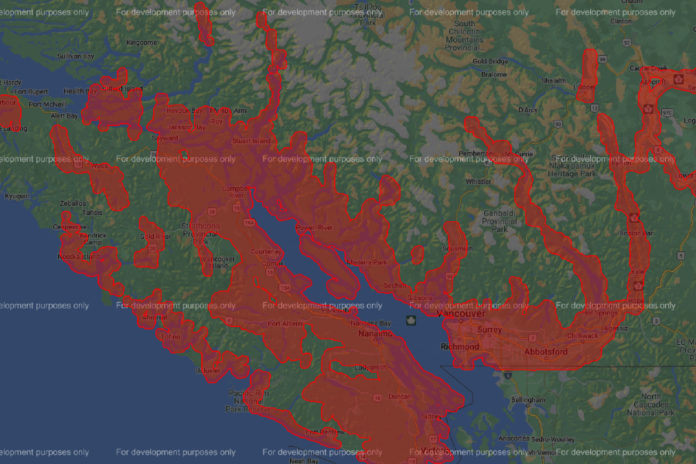As temperature begin to rise, so does the risk of bites from ticks and the possible infection with bacteria that causes Lyme disease.
To help combat the situation, the BC Centre for Disease Control (BCCDC) has launched an interactive map to help people assess their risk of being bitten as they head out for some summer fun.
Unfortunately, according BCCDC, much of the southern half of Vancouver Island is a potentially risky region for encountering the black-legged tick, which can carry Lyme disease and infect people or pets with its bite.
Lyme disease is caused by the bacterium Borrelia burgdorferi and typical symptoms include fever, headache, fatigue, and a characteristic skin rash called erythema migrans.
It is transmitted to humans through the bite of infected black legged ticks, with the greatest risk of tick bite occurring during the spring and summer months.
According to BCCDC, early diagnosis is important when bitten, and when left untreated, Lyme disease can lead to serious complications such as arthritis, joint pain and cognitive issues.
The BCCDC said there’s only only a very small chance of ticks transmitting Lyme disease, but because it can be so serious, it’s best to take steps to protect yourself in at-risk areas.
For those planning on heading out for a hike in tall grass or wooded areas, here are some tips from BCCDC on protecting yourself from ticks and bites:
- Use insect repellant with DEET or Icaridin
- Walk on cleared trails
- Wear light-coloured clothing, tucking your pants into boots or socks
- When you leave an area where ticks could be found, check your whole body for ticks and put your clothes in a hot dryer for 10 minutes to kill any leftover ticks
BCCDC has a full Tick Talk resource section to learn more about ticks and Lyme disease.


